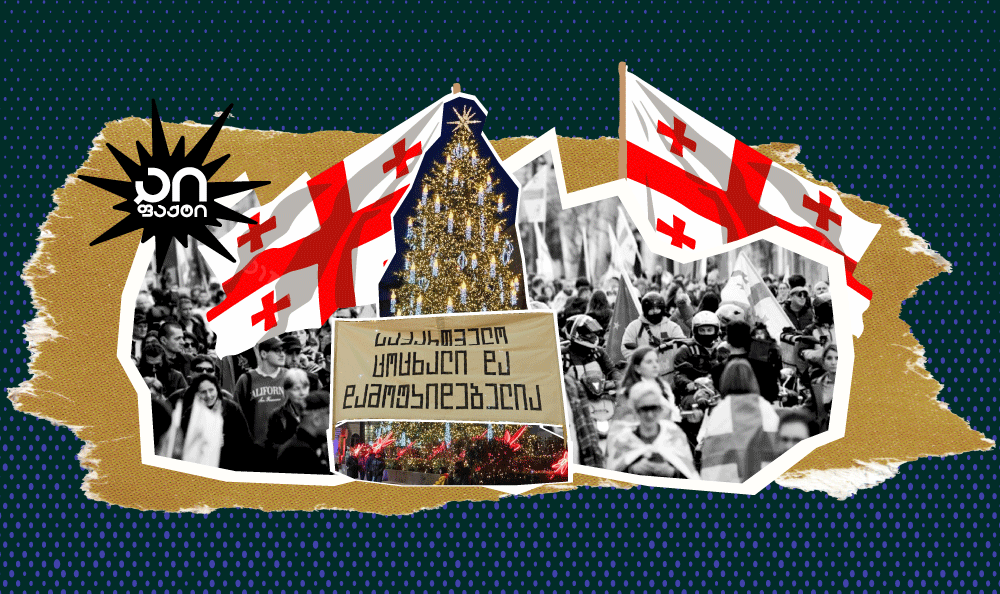Protests against the Russification of the country began a month ago in Tbilisi and the regions and are ongoing to this day.
The main demands remain unchanged: the release of unjustly detained prisoners and the scheduling of new elections.
The government continues its strategy of ignoring the protests, refusing to address the demands or make concessions.
Key events over the past month:
- During the brutal and criminal dispersal of the protests, more than 300 individuals were injured, although the exact number remains unknown.
- Nearly 500 demonstrators were arbitrarily detained, 46 of whom face criminal charges and remain in custody.
- Over 90 members of the media—journalists, camera operators, and photographers—were injured, detained, or obstructed in their professional duties.
- In response to the erosion of democracy and the severe violence against citizens, Western nations have taken strict measures:
- The UK, Baltic states, and Ukraine imposed sanctions on Bidzina Ivanishvili, Irakli Kobakhidze, members of the Georgian Dream party, and high-ranking officials of the Ministry of Internal Affairs, including the “Khareba” unit.
- The U.S. introduced visa restrictions for Georgian officials and added Interior Minister Gomelauri and his deputy to the so-called Magnitsky List.
- The European Council decided to suspend visa-free travel for holders of Georgian diplomatic and service passports.
- Sanctions have also been announced by Canada, Germany, and the Czech Republic.
- A phone call took place between French President Emmanuel Macron and oligarch Bidzina Ivanishvili. Macron demanded the release of unlawfully detained prisoners and respect for freedom of expression and assembly.
- European Parliament members visited Tbilisi on a special mission, followed by an invitation from the President of the European Parliament for Georgian President Salome Zurabishvili to address the plenary session in Brussels. On December 18, Zurabishvili delivered a speech to European Parliament members, which was met with supportive gestures and applause.
- On December 14, the illegitimate parliament elected former footballer Mikheil Kavelashvili as president. On the same day, the Secretary-General of the Council of Europe, Alain Berset, arrived in Georgia.
- On December 20, the OSCE/ODIHR published a critical report on the parliamentary elections.
- On December 21, more than 20 marches took place in Tbilisi, culminating in the gathering of nearly 200,000 citizens on Rustaveli Avenue.
- On December 22, Salome Zurabishvili announced that she would remain the President of Georgia and invited oligarch Ivanishvili to the presidential palace to negotiate a date for new elections. The president gave Ivanishvili until December 29 to respond.
- On December 23, Germany suspended projects in Georgia worth €237 million.
- On December 24, Human Rights Watch released a report describing the actions of law enforcement against demonstrators as punitive.
- One month after the protests began, not a single law enforcement officer involved in the violent dispersals has faced accountability.










